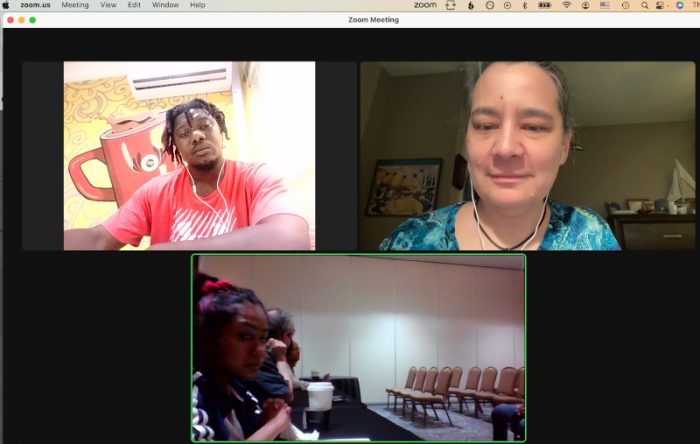
This morning was the ICFA panel on “Editing Beyond the Non-Western World,” which was intended to feature guest of honor Oghenechovwe Donal Ekpeki, as well as myself, Mary Anne Mohanraj, Neil Clarke, and moderator Mimi Mondal. As it has turned out, Oghenechovwe was detained when he traveled to the USA to attend the NAACP Image Awards and denied a visa for entry, meaning he could not attend ICFA, either. And I am missing the convention also, even though I’m currently only a 90-minute drive away, because I’m in the Tampa area where my father’s health is failing. (He was giving last rites in the hospital a few days ago when his doctors believed his expiration was imminent, so I cancelled my plans to go to Orlando, but now that he is home and having home hospice care, he seems to be holding up…! Thank you everyone for all your good wishes and prayers!)
Although the panel room had no WIFI, Mimi had the idea to try to bring us into the panel via Zoom using her own cellular data plan, and this effort was largely successful, but in many ways was a perfect metaphor for the difficulties of publishing writers from outside the USA or Great Britain. One common theme of the panel’s remarks was that there are systemic and logistical barriers to entry for writers from the non-Western world, including issues with currency conversion and difficulty of access to markets and source materials. And another theme was how often the only entities redressing the situation were individuals applying their own resources.
( Read the rest of this entry » )Mirrored from cecilia tan.

